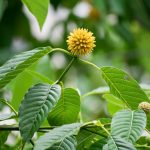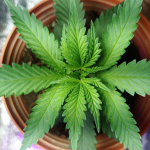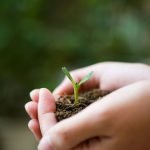Sibling Bullying Could Increase Risks of Psychotic Disorders
Node Smith, ND
Bullied Sibs More Likely to Develop a Psychotic Disorder
A new study has found that individuals who were bullied by their siblings growing up may be up to 3 times more likely to develop a psychotic disorder in early adulthood.1 The research was conducted at the University of Warwick.
first research study to address association between sibling bullying and development of psychotic disorders
This is the first research study to address the association between sibling bullying and the development of psychotic disorders. The study was led by Professor Dieter Wolke, Warwick University Department of Psychology. Roughly 3,600 children were included in the study from the Avon Longitudinal Study of Parents and Children. Participants had completed a detailed questionnaire on sibling bullying at age 12. A standardized clinical examination was also filled out for psychotic symptoms at age 18.
Study Stats
Out of all the teens, 664 were victims of sibling bullying, 486 were bullies to their siblings and 771 were bully-victims (victimized by siblings as well as bullied by them). 55 total children, out of the 3600 developed psychotic symptoms by the age of 18, including bipolar symptoms and schizophrenia.
Sibling Bullying Study Findings
The study found that increased frequency of sibling bullying – either as a victim, a bully, or both – resulted in a higher risk for developing a psychotic disorder. Those who were involved in bullying several times a week or month were 2-3 times more likely to display psychotic symptoms at 18 years of age. Those most at risk were the victims of bullying, but also those who were both victims and bullies.
Children who were victimized both at home by their siblings, and at school by peers are even more at risk – 4 fold increase in risk of developing psychosis.
Time to Stop Ignoring Bullying as a Trauma Powerful Enough to Induce Mental Health Issues
Bullying has widely been ignored as a trauma that could lead to serious mental health problems. The authors of the study stress the importance of realizing that children spend a substantial amount of time with siblings, and if that time is spent in the context of bullying, these individual social traumas may have a large effect over time. This creates the understanding that family, and home may not be a safe place.
Source:
- Toseeb U, Mcchesney G, Wolke D. The Prevalence and Psychopathological Correlates of Sibling Bullying in Children with and without Autism Spectrum Disorder. J Autism Dev Disord. 2018
Image Copyright: <a href=’https://www.123rf.com/profile_wernerimages’>wernerimages / 123RF Stock Photo</a>
 Node Smith, ND, is a naturopathic physician in Portland, OR and associate editor for NDNR. He has been instrumental in maintaining a firm connection to the philosophy and heritage of naturopathic medicine among the next generation of docs. He helped found the first multi-generational experiential retreat, which brings elders, alumni, and students together for a weekend camp-out where naturopathic medicine and medical philosophy are experienced in nature. Four years ago he helped found the non-profit, Association for Naturopathic ReVitalization (ANR), for which he serves as the board chairman. ANR has a mission to inspire health practitioners to embody the naturopathic principles through experiential education. Node also has a firm belief that the next era of naturopathic medicine will see a resurgence of in-patient facilities which use fasting, earthing, hydrotherapy and homeopathy to bring people back from chronic diseases of modern living; he is involved in numerous conversations and projects to bring about this vision.
Node Smith, ND, is a naturopathic physician in Portland, OR and associate editor for NDNR. He has been instrumental in maintaining a firm connection to the philosophy and heritage of naturopathic medicine among the next generation of docs. He helped found the first multi-generational experiential retreat, which brings elders, alumni, and students together for a weekend camp-out where naturopathic medicine and medical philosophy are experienced in nature. Four years ago he helped found the non-profit, Association for Naturopathic ReVitalization (ANR), for which he serves as the board chairman. ANR has a mission to inspire health practitioners to embody the naturopathic principles through experiential education. Node also has a firm belief that the next era of naturopathic medicine will see a resurgence of in-patient facilities which use fasting, earthing, hydrotherapy and homeopathy to bring people back from chronic diseases of modern living; he is involved in numerous conversations and projects to bring about this vision.










